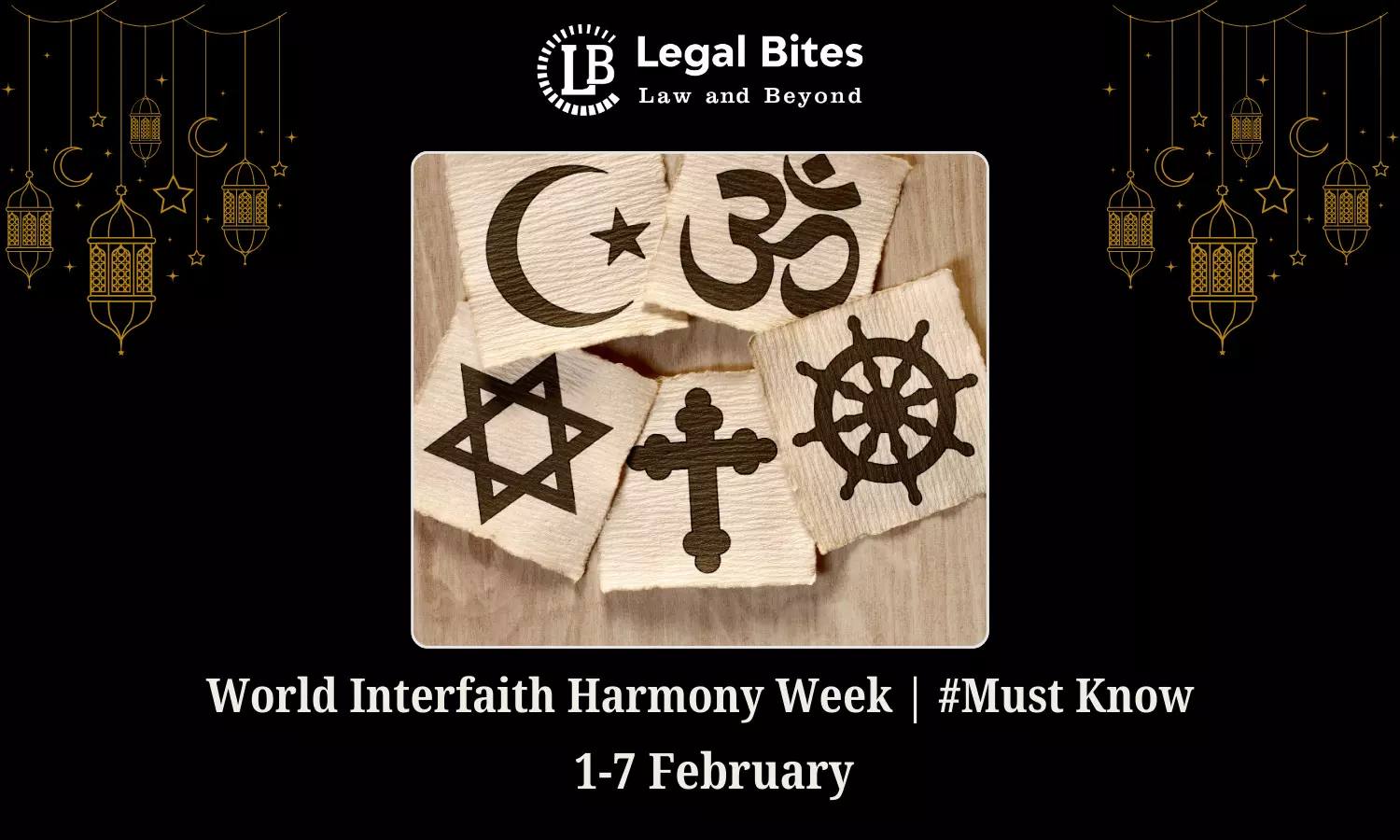World Interfaith Harmony Week | #Must Know
World Interfaith Harmony Week 2025 promotes unity, dialogue, and peace—scroll down to explore its theme, objectives, and more!

World Interfaith Harmony Week (WIHW) is an annual event observed during the first week of February to promote interfaith dialogue, understanding, and cooperation among people of different religions. Established by the United Nations in 2010, this initiative underscores the importance of mutual respect and peaceful coexistence in a world often divided by religious differences. It serves as a reminder that harmony among diverse faiths is essential for global peace and sustainable development.
The theme for World Interfaith Harmony Week 2025 is 'Uniting for Peace'.
Origin and Significance
The idea of World Interfaith Harmony Week was proposed by King Abdullah II of Jordan at the United Nations General Assembly in 2010. The initiative builds on the Common Word initiative, which emphasizes the shared principles of "Love of God and Love of Neighbour" as common ground for different religions. The UN General Assembly unanimously adopted the resolution, recognizing the importance of dialogue in fostering peace and understanding across cultures and faiths.
Objectives of World Interfaith Harmony Week
The primary goals of World Interfaith Harmony Week include:
- Encouraging Interfaith Dialogue: Facilitating conversations that promote religious tolerance and mutual respect.
- Promoting Peaceful Coexistence: Highlighting shared values among religions to bridge divides and reduce conflict.
- Fostering Cooperation in Social Initiatives: Encouraging interfaith collaboration in addressing social issues such as poverty, education, and healthcare.
- Countering Religious Intolerance: Raising awareness about the dangers of religious extremism and discrimination.
- Strengthening Community Bonds: Bringing together religious groups, policymakers, and civil society to promote harmony at the local, national, and global levels.
Activities and Celebrations
Governments, religious organizations, and community groups observe World Interfaith Harmony Week through various activities, including:
- Interfaith Conferences and Forums: Panel discussions and seminars featuring religious leaders and scholars on topics related to faith, peace, and global challenges.
- Community Service Initiatives: Joint efforts by different religious groups to serve the underprivileged and promote social welfare.
- Peace Walks and Public Gatherings: Demonstrations of unity through marches, interfaith prayers, and cultural events.
- Educational Programs: Schools and universities conduct workshops and discussions on religious tolerance and the importance of harmony among faiths.
- Social Media Campaigns: Online initiatives to spread awareness about interfaith harmony and its impact on society.
Role of Religious Leaders and Communities
Religious leaders and faith-based organizations play a crucial role in fostering interfaith harmony. Their influence helps shape public attitudes towards inclusivity and respect. By engaging in open dialogue and collaborative initiatives, religious leaders can address misconceptions, reduce prejudices, and create a culture of empathy and cooperation.
The Way Forward
To ensure the success of interfaith harmony efforts, it is essential to:
- Encourage Grassroots Movements: Local communities should take proactive steps in promoting dialogue and inclusivity.
- Strengthen Education and Awareness Programs: Schools should integrate interfaith understanding into their curricula.
- Enhance Government and Institutional Support: Policymakers must promote laws and policies that uphold religious freedom and social harmony.
- Leverage Technology for Outreach: Digital platforms can be used to spread messages of peace and unity among diverse communities.
Conclusion
World Interfaith Harmony Week is a significant initiative that underscores the need for unity in a world of diverse religious beliefs. By fostering dialogue, promoting understanding, and encouraging cooperation, WIHW helps build a more inclusive and peaceful global society. It is an opportunity for individuals and communities to reaffirm their commitment to coexistence and collective progress, transcending religious differences for the greater good of humanity.
Important Link

